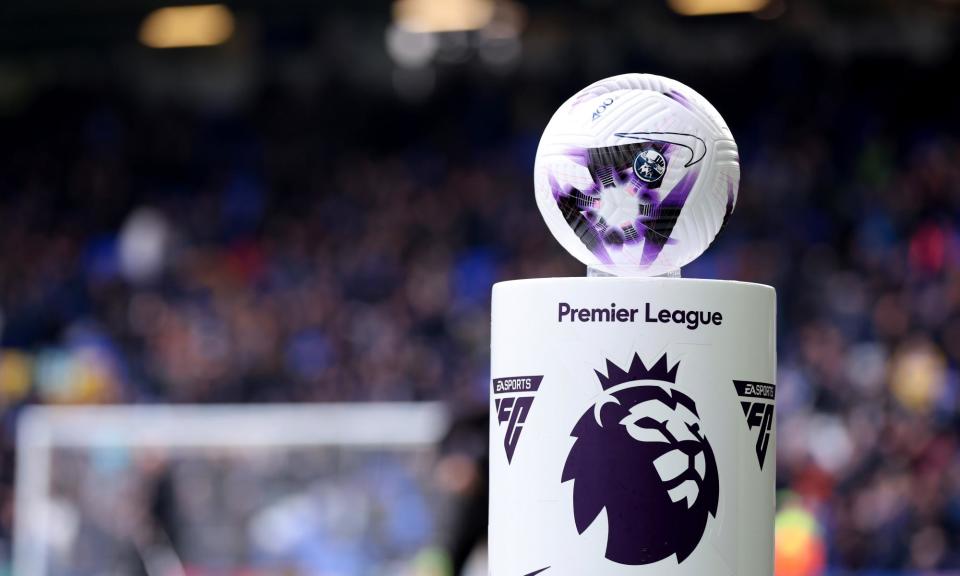English football regulator close as government confirms ‘historic’ bill

An independent regulator for English football is imminent after the government confirmed plans to put a bill before parliament under which clubs could be fined up to 10% of revenues if they breach agreed conditions.
The long-awaited football governance bill is to be published on Tuesday and will define the powers of the regulator according to three objectives: “to improve financial sustainability of clubs, ensure financial resilience across the leagues, and to safeguard the heritage of English football”.
The details of the bill, once published, will be pored over by politicians, football administrators and fans as a day supporter groups have long campaigned for finally comes to pass.
Related: Supporters should blame club owners – not the rules – for points deductions | Barney Ronay
The bill has been months in the making, with the government under pressure to deliver on its promise of a regulator as recently as last week. On Monday Rishi Sunak confirmed the bill in what he said was a “historic moment” for fans.
“For too long some clubs have been abused by unscrupulous owners who get away with financial mismanagement, which at worst can lead to complete collapse – as we saw in the upsetting cases of Bury and Macclesfield Town,” the prime minister said. “This bill is a historic moment for football fans – it will make sure their voices are front and centre, prevent a breakaway league, protect the financial sustainability of clubs, and protect the heritage of our clubs big and small.”
The regulator has been the subject of debate and lobbying inside the game since the government published its fan-led review of football governance, which was led by Tracey Crouch MP. The Premier League long argued that English football was capable of regulating itself, but last week’s decision by 10 of its clubs to walk away from a financial redistribution deal with the English Football League is understood to have prompted the government to hasten the bringing of legislation before parliament.
The Premier League said on Monday night: “We remain concerned about any unintended consequences of legislation that could weaken the competitiveness and appeal of English football.”
The primary function of the regulator will be to grant operating licences for clubs from the Premier League to non-league, dependent on their passing mandatory criteria relating to fan engagement, corporate governance and financial reporting. Further, bespoke criteria around financial and non-financial resources (including a club’s structure and the makeup of personnel) could be added to the terms of any licence.
The regulator will have the ability to ensure financial redistribution is agreed between the different levels of the game, its so-called backstop powers. Government sources insist the regulator will not be “overly interventionist”, however, and will adopt an “advocacy-first” approach to settling issues of noncompliance. It will have no input on on-field decisions.
Crouch, the Conservative MP for Chatham and Aylesford and a former sports minister, said: “Football fans can begin to breathe a sigh of relief in the knowledge that the next steps towards protecting the long-term sustainability of the pyramid have now been taken.”
One of the structural problems affecting the game was also brought into focus by research published by the Black Footballers Partnership showing the discrepancies facing black former players who hope to get into management.
Work conducted for the BFP by three academics on a cohort of 3,500 players who played in the Premier League or Championship between 1990 and 2010 found non-black players were 50% more likely to get into management, regardless of the individual’s playing career. Black managers were also found 41% more likely to be sacked than white managers, while black coaches were less likely to be promoted.

